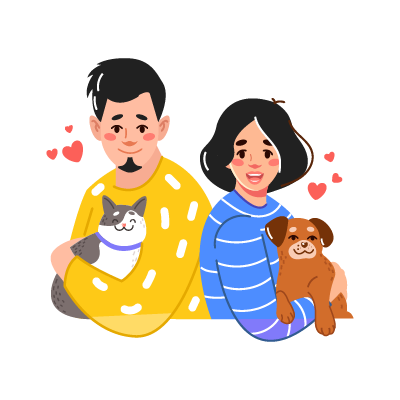Uses
What is Entonox® (oxygen, nitrous oxide) used for?
Entonox® is a medicinal gas mixture supplied in cylinders filled to a high pressure. It is commonly used is used to relieve pain during:
- Labor in childbirth
- Dental treatment
- Wound cleaning, stitching or dressing
- Acute trauma such as broken bones
- Other medical conditions or surgical and investigative
Entonox® may be prescribed for other uses; ask your doctor or pharmacist for more information.
How should I take Entonox® (oxygen, nitrous oxide)?
In a hospital or clinic:
Entonox® will be given to you by a healthcare professional.
They will ensure that your supply is suitable for your using and that the equipment has been set up correctly.
At Home:
You will be given full training on the use of the cylinder and equipment when you receive your first supply. You must:
- Ensure that the cylinder is stood upright on a flat surface and supported so that it will not fall over. Small cylinders may be laid down if appropriate.
- Check the contents gauge on the cylinder or the regulator before you start to make sure there is enough gas available for your use
- Check that the tubing is correctly fitted to the gas outlet.
- Ensure that all equipment is kept free from oil and grease.
- Open the cylinder valve slowly.
- Turn the cylinder valve ‘off’ with moderate force only when the cylinder is not in use.
- If a leak occurs, this will be evident by a hissing noise. Close the cylinder valve and check the equipment
- Close the valve with moderate force only when the cylinder is empty.
Always use your Entonox® exactly as your healthcare professional has shown you. You should check with your healthcare professional if you are not sure.
Do not smoke or have a naked flame near your Entonox® gas cylinder. The Entonox® will make a flame burn much more violently.
Never use oil based moisturizing creams with your cylinder equipment. If using alcohol gels allow plenty of time for the alcohol gel to dry before handling your cylinder equipment.
How do I store Entonox® (oxygen, nitrous oxide)?
Entonox® is best stored at a temperature of at least 10ºC for at least 24 hours before use, keep it away from direct light and moisture. To prevent drug damage, you should not store Entonox® in the bathroom or the freezer. There may be different brands of Entonox® that may have different storage needs. It is important to always check the product package for instructions on storage, or ask your pharmacist. For safety, you should keep all medicines away from children and pets.
You should not flush Entonox® down the toilet or pour them into a drain unless instructed to do so. It is important to properly discard this product when it is expired or no longer needed. Consult your pharmacist for more details about how to safely discard your product.
Precautions & warnings
What should I know before using Entonox® (oxygen, nitrous oxide)?
Consult with your doctor or pharmacist, if:
- You are pregnant or breastfeeding. This is because, while you are expecting or feeding a baby, you should only take medicines on the recommendation of a doctor.
- You are taking any other medicines. This includes any medicines you are taking which are available to buy without a prescription, such as herbal and complementary medicines.
- You have allergy with any of active or inactive ingredients of Entonox® or other medications.
- You have any other illnesses, disorders, or medical conditions.
- You have recently had any surgery on your eyes or ears where injections of gas have been used.
Is it safe during pregnancy or breastfeeding?
There isn’t enough information about the safety of using this medication during pregnancy and breastfeeding. Please always consult with your doctor to weigh the potential benefits and risks before taking this medication.
Side effects
What side effects can occur from Entonox® (oxygen, nitrous oxide)?
When using this drug, common side effects include:
- Dizziness
- Light-headedness
- Sickness
- Tingling
- Disorientation
Less common side effects are:
- Problems with the ear due to increased pressure inside the ear
- Tiredness
- Bowel enlargement due to trapped gas
Not everyone experiences these side effects. There may be some side effects not listed above. If you have any concerns about a side-effect, please consult your doctor or pharmacist.
Interactions
What drugs may interact with Entonox® (oxygen, nitrous oxide)?
Entonox® may interact with other drugs that you are currently taking, which can change how your drug works or increase your risk for serious side effects. To avoid any potential drug interactions, you should keep a list of all the drugs you are using (including prescription drugs, nonprescription drugs, and herbal products) and share it with your doctor and pharmacist. For your safety, do not start, stop, or change the dosage of any drugs without your doctor’s approval.
Some products that may interact with this drug include:
- Methotrexate (treating arthritis or cancer): Taking Entonox® with Methotrexate may have an effect on your blood cell count.
- Diazepam or Lorazepam (treating anxiety or help to sleep): Taking Entonox® with these drugs may increase the effect of Entonox®.
- Bleomycin (to treat cancer), Amiodarone (treating an irregular heartbeat) or Nitrofurantoin and similar antibiotics (treating infection): Taking Entonox® with these drugs may increase the possibility of toxic effects to the lungs.
Does food or alcohol interact with Entonox® (oxygen, nitrous oxide)?
Entonox® may interact with food or alcohol by altering the way the drug works or increase the risk for serious side effects. Please discuss with your doctor or pharmacist any potential food or alcohol interactions before using this drug.
What health conditions may interact with Entonox® (oxygen, nitrous oxide)?
Entonox® may interact with your health condition. This interaction may worsen your health condition or alter the way the drug works. It is important to always let your doctor and pharmacist know all the health conditions you currently have.
Do not use Entonox® if you have:
- Air trapped in a part of the body where it’s expansion may be dangerous, such as air lodged in an artery
- A collapsed lung
- Decompression sickness (the bends) or if you have been deep diving within 48 hours
- Lung disease or breathing difficulties such as emphysema
- Injuries to the face and jaw
- Head injuries
- A severely bloated stomach
- Suspected or known increased pressure on the brain
Dosage
The information provided is not a substitute for any medical advice. You should ALWAYS consult with your doctor or pharmacist before using this medication.
What is the dose of Entonox® (oxygen, nitrous oxide) for an adult?
Entonox® is self-administered and inhaled via a demand valve through a face mask or mouthpiece. The gas is breathed in by the patient on demand and absorbed through the lungs.
Entonox® should only be administered by medical personnel trained in the appropriate techniques and in an adequate environment.
What is the dose of Entonox® (oxygen, nitrous oxide) for a child?
Entonox® is self-administered and inhaled via a demand valve through a face mask or mouthpiece. The gas is breathed in by the patient on demand and absorbed through the lungs.
Entonox® should only be administered by medical personnel trained in the appropriate techniques and in an adequate environment.
How is Entonox® (oxygen, nitrous oxide) available?
Entonox® is available in the following dosage forms and strengths:
- Cylinder EA 350L
- Cylinder D* 500L
- Cylinder ED 700L
- Cylinder F* 2000L
- Cylinder EX 3500L
- Cylinder G* 5000L
- Cylinder EW 16275L
What should I do in case of an emergency or overdose?
In case of an emergency or an overdose, call your local emergency services or go to your nearest emergency room.
What should I do if I miss a dose?
If you miss a dose of Entonox®, take it as soon as possible. However, if it is almost time for your next dose, skip the missed dose and take your regular dose as scheduled. Do not take a double dose.
[embed-health-tool-bmi]















